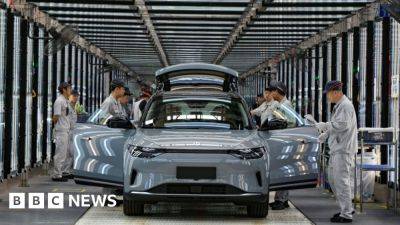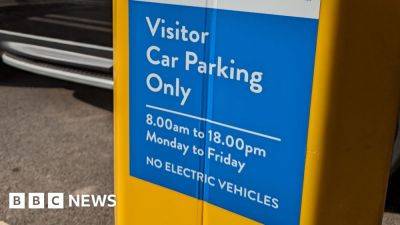Fake engine noises in electric cars need to die
You finally get that notification that the electric car you ordered months ago is ready for pickup. You get to the location, sit in the car and turn it on. Pulling out into the road, you hear something — a strange noise you didn’t quite expect. You expected the sweet quietness of a full electric vehicle. But is that … engine noise?
Contents- A rundown of fake noise
- A realistic simulation
- It’s all about options
- EVs have no soul
It is and it isn’t. As humans, we’ve been so used to the sound of an engine for so long that carmakers think we’ve associated that low-frequency rumble with performance and quality. So, what are they doing? That’s right — they’re pumping fake engine noises through the speakers in your electric car.
Yeah, it’s pretty dumb.
Recommended VideosA rundown of fake noise
To be fair, not all EV manufacturers use fake engine noises — but a good portion of them do, and they seem to be split into two categories.
First, there are the cars that try and emulate real engines. The Mustang Mach-E does this, and the sound is different depending on the drive mode that you’re in. The Dodge Hornet R/T does this too, with a little more attention to detail by using only specific speakers to ensure that the noise sounds like it’s coming from a certain direction. Recently, the Hyundai Ioniq 5 N made headlines for its fake engine noises aimed at replicating the noise of a rally car.
The other category of fake car noise is aimed at creating a more futuristic experience. Mercedes-Benz has become somewhat famous for this with cars like the EQS, which can generate an array of crazy-sounding noises when you hit that accelerator.
To be clear, these fake noises are for the benefit of the driver. There are laws in place about cars generating noise outside the cabin, to alert pedestrians of the car’s presence, for example. This has nothing to do with what we’re talking about — these noises are different from those that cars generate inside the cabin.
A realistic simulation
So why are carmakers doing this? Well, it seems to have to do with carmakers wanting to simulate the experience of driving a gas-powered car — and it doesn’t end with fake noises.
Toyota, for example, is







